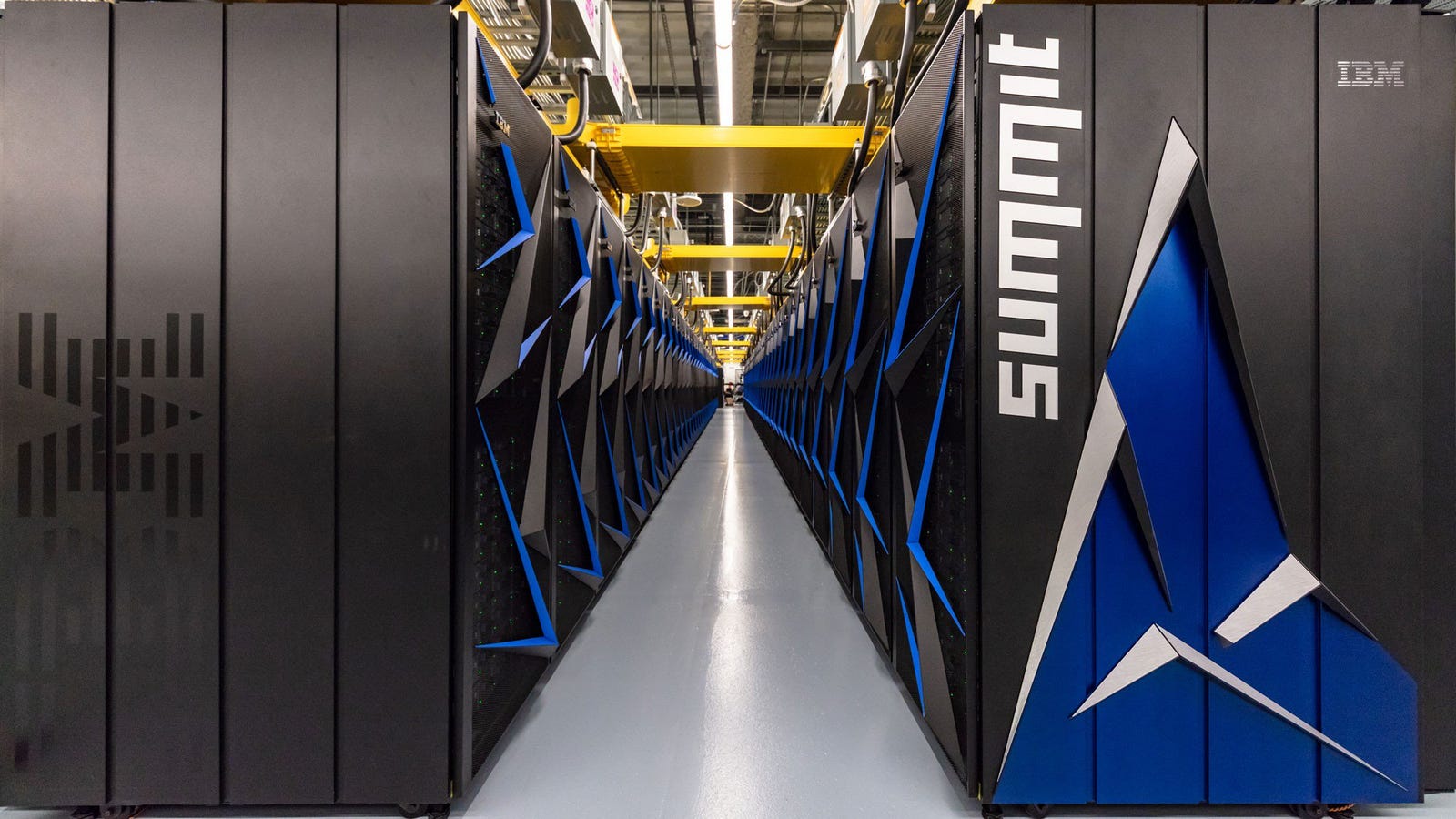The World’s Most Powerful Supercomputer Is an Absolute Beast
https://ift.tt/2HwP8nb

Behold Summit, a new supercomputer capable of making 200 million billion calculations per second. It marks the first time in five years that a machine from the United States has been ranked as the world’s most powerful.
The specs for this $200 million machine defy comprehension. Built by IBM and Nvidia for the US Department of Energy’s Oak Ridge National Laboratory, Summit is a 200 petaflop machine, meaning it can perform 20 quadrillion calculations per second. That’s about a million times faster than a typical laptop computer. As the the New York Times put it, a human would require 63 billion years to do what Summit can do in a single second. Or as stated by MIT Technology Review, “everyone on Earth would have to do a calculation every second of every day for 305 days to crunch what the new machine can do in the blink of an eye.”
The machine, with its 4,608 servers, 9,216 central processing chips, and 27,648 graphics processors, weighs 340 tons. The system is housed in a 9,250 square-foot room at Oak Ridge National Laboratory’s facility in Tennessee. To keep this machine cool, 4,000 gallons of water are pumped through the system. The 13 megawatts of energy required to power this behemoth could light up over 8,000 US homes.
Summit is now the world’s most powerful supercomputer, and it is 60 percent faster than the previous title holder, China’s Sunway TaihuLight. It’s the first time since 2013 that a US-built computer has held the title, showing the US is keeping up with its main rival in this area, China. Summit is eight times more powerful that Titan, America’s other top-ranked system.
As MIT Technology Review explains, Summit is the first supercomputer specifically designed to handle AI-specific applications, such as machine learning and neural networks. Its thousands of AI-optimized chips, produced by Nvidia and IBM, allow the machine to crunch through hideous amounts of data in search of patterns imperceptible to humans. As noted in an Energy.gov release, “Summit will enable scientific discoveries that were previously impractical or impossible.”
Summit and machines like it can be used for all sorts of processor-heavy applications, such as designing new aircraft, climate modeling, simulating nuclear explosions, creating new materials, and finding causes of disease. Indeed, its potential to help with drug discovery is huge; Summit, for example, could be used to hunt for relationships between millions of genes and cancer. It could also help with precision medicine, in which drugs and treatments are tailored to individual patients.
From here, we can look forward to the next generation of computers, so-called “exascale” computers capable of executing a billion billion (or one quintillion) calculations per second. And we may not have to wait long: The first exascale computers may arrive by the early 2020s.
Tech
via Gizmodo http://gizmodo.com
June 8, 2018 at 03:57PM

